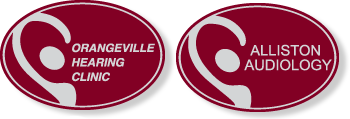Checking for Hearing Loss
Three types of hearing checks exist: Comprehensive Assessment, Basic Test and Hearing Screening. We recommend a Comprehensive Assessment. Basic testing has been available and unchanged since the 1980s and is not recommended. Hearing Screening can determine if a comprehensive assessment is warranted.
Comprehensive Assessment
Your audiologist will select the relevant tests which may include video inspection of the ear (video otoscopy), eardrum movement testing (tympanometry and middle ear muscle reflex testing), inner ear hair cell testing (otoacoustic emission test), puretone and speech testing (audiometry), Speech-in-Noise testing, high-frequency audiometry (9000 to 16000 Hz for chemotherapy, radiation therapy monitoring), speech-in-noise testing, tinnitus testing (tinnitus matching), and others.Basic Test
Puretone and speech testing (audiometry), looking into your ear (otoscopy) eardrum movement testing (tympanometry).Screening
Hearing screenings are generally performed at work or in the community and generally use a pass/fail criteria. For example, if your hearing level was lower than a set level, you would be referred for a comprehensive assessment. It is recommended that people over fifty years of age get their hearing checked regularly. Orangeville Hearing Clinic and Alliston Audiology are there to work with you through this process.- Many individuals are not aware of their hearing loss.
- 1 out of 10 individuals have a hearing loss.
- 3 out of 1000 children are born with hearing loss.
- Most hearing loss is permanent and cannot be managed with medication or surgery, but can be helped with hearing aids.
- People with high blood pressure are 75% more likely to have hearing loss.
- Smokers are 1.7 times more likely to have hearing loss than non-smokers.
- Hearing loss is about twice as common in adults with DIABETES compared to those who do not have the disease
- Many medications can affect hearing and/or cause sounds to occur in the ears such as ringing or buzzing.
- The deterioration related to hearing loss extends beyond the ears up to the pathways and auditory centers of the brain.
- The majority (65%) of people with hearing loss are below retirement age.
- The majority (60%) of people with hearing loss are males.
Quality of Life and Hearing Loss
- Those who are unaware of their hearing loss may isolate themselves socially for fear of embarrassment.
- Depression and anxiety have been linked to hearing loss, significantly lowering quality of life and self image.
- Individuals with hearing loss report a higher quality of life after they begin to use hearing aids.
- Treatment of hearing loss will improve interpersonal relationships.
- The use of hearing aids is associated with reductions in anger, frustration, paranoia, anxiety and overall improvements in emotional stability.
- Most people who use hearing aids have improved social lives.
- 9 out of 10 hearing aid users report improvements in their quality of life.
Work and Hearing Loss
- 1 in 4 workers exposed to high levels of noise will develop a hearing loss.
- Professions at risk for hearing loss include firefighters, police officers, factory workers, farmers, construction workers, military personnel, heavy industry workers, musicians, and entertainment industry professionals.
- One of the key determinants of success with hearing aids is associated with greater earning power.
Children and Hearing Loss
- Hospitals now offer newborn hearing screening before discharge from the hospital as part of the Infant Hearing Program of Ontario.
- Peter Kirchberger, Doctor of Audiology, is part of the Infant Hearing Program of Ontario.
- All children should be screened for hearing loss before 1 month of age.
- 85% of all children experience at least one ear infection.
- Second-hand smoke in the home increases the risk of middle ear infections and respiratory allergies in children.
- Infants may begin to use hearing aids as early as 2-4 months of age.
- Even a mild hearing loss can seriously impact a child’s ability to learn in a school environment.
- Hearing loss in children can be misdiagnosed as a learning disability.
Schedule an Appointment
With our advanced products and services, we'll find the right fit for your hearing needs!
Doctors Needing Referral
To doctors who need patient referrals, please click the button below.
Orangeville Hearing Clinic
Orangeville Medical and Professional Building
15 Elizabeth St., Suite M11
Orangeville, ON
L9W 3X3
Alliston Audiology
Windsor House, P.O. Box 99,
36 Victoria St. West, Unit 1
Alliston, ON
L9R 1V5
Alliston Audiology
36 Victoria St. West, Unit 1, Alliston, Ontario
(705) 435-2133
Serving: Orangeville, Shelburne, Caledon, Caledon East, Erin, Hillsburgh, Grand Valley, Alliston, Angus, Tottenham, Beeton, Cookstown, Alton
